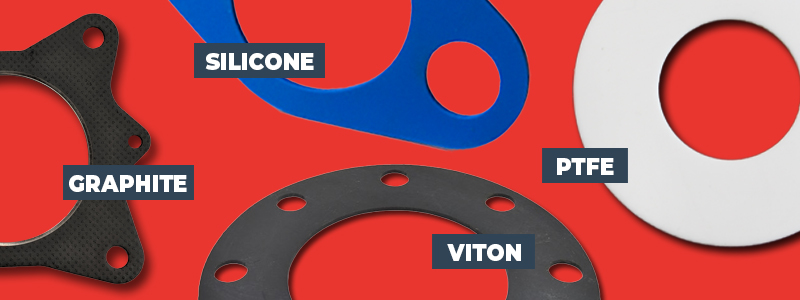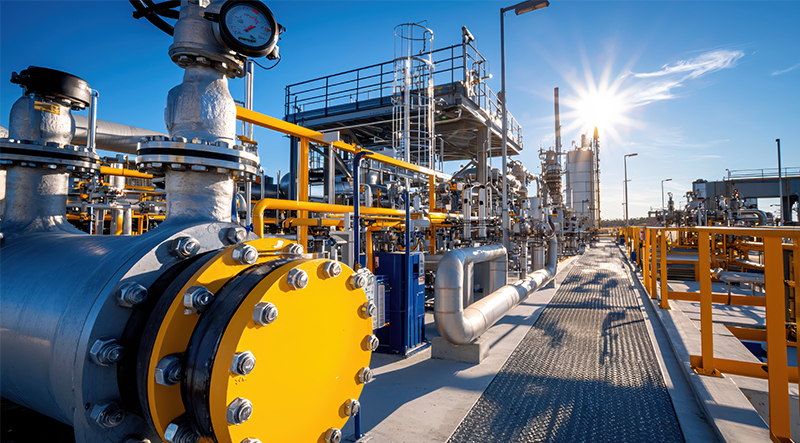As temperatures rise during the warmer months, the performance of gaskets and seals can be increasingly affected, especially in outdoor installations or environments with elevated ambient heat.
For sectors that rely on continuous system reliability, including construction, utilities, power generation and transport infrastructure, understanding how high temperatures influence gasket behaviour is essential for minimising downtime and avoiding long-term degradation.
Thermal Stress and Gasket Degradation
Prolonged exposure to heat affects the physical and chemical properties of most elastomeric and composite gasket materials. In applications where components are exposed to direct sunlight, elevated ambient temperatures, or high surface temperatures from adjacent equipment, the risk of seal failure increases significantly.
One of the most common thermal effects is dimensional change. Gaskets may expand or contract with temperature fluctuations, potentially compromising the integrity of the seal. This is especially critical in rigid flange assemblies or bolted joints, where differential thermal expansion between the gasket and mating surfaces can lead to leaks.
Heat can also cause materials to harden or soften beyond their designed tolerances. This may result in a loss of compressibility, which undermines the gasket’s ability to recover under cyclical loads. Over time, repeated exposure to elevated temperatures can accelerate the ageing process of materials, leading to embrittlement, cracking or chemical breakdown, especially in outdoor environments exposed to both UV and ozone.

Sector-Specific Considerations
In the UK, several sectors encounter recurring gasket-related issues during periods of high ambient temperature. Rooftop HVAC installations, for example, frequently experience premature seal degradation due to direct sunlight and metal surface temperatures. Silicone or EPDM gaskets are typically specified here for their resilience to both heat and UV exposure.
In the utilities sector, above-ground pipework used in water treatment and irrigation systems is prone to leaks caused by thermal shrinkage. EPDM is a preferred material in these systems due to its temperature resistance and stability in steam and cleaning agents.
Power generation systems, including biomass and CHP plants, present a more demanding challenge. Seals in boilers, turbines and steam lines must operate reliably at much higher temperatures, where conventional elastomers are unsuitable. In such cases, graphite-based gaskets, often reinforced with stainless steel, are commonly employed for their thermal resilience and dimensional stability.
Transport infrastructure applications, such as railway signalling systems and roadside telecommunications enclosures, also require weather-resistant gaskets. UV-stabilised silicone or TPE compounds are effective in protecting against thermal and environmental ageing in these exposed settings.
Material Selection for Heat Resistance
The selection of gasket material is critical to mitigating the effects of heat. Several materials commonly used across UK industry offer differing levels of thermal performance, and each material has its own advantages and limitations. For mission-critical systems, it is essential to evaluate both the operational temperature range and the environmental exposure conditions during the specification phase.
Materials That Resist Heat Degradation
| Material | Max Temp. | Key Benefits | Typical Applications |
| Silicone | ~230°C | Excellent heat and UV resistance, maintains flexibility | HVAC gaskets, electrical enclosures |
| EPDM | ~150°C | Weather, ozone, and steam-resistant | Pipe seals, building façades, irrigation systems |
| FKM (Viton®) | ~250°C | High chemical and heat resistance | Fuel systems, oil/gas valves |
| PTFE | ~260°C | Chemically inert, non-stick, stable at high temps | Pharmaceutical piping, lab equipment |
| Graphite (reinforced) | >450°C | Extremely heat-resistant, ideal for static sealing | Steam systems, power generation |
Thermal conditions, both ambient and process-related, must be carefully considered when specifying gaskets and seals in any industrial system. As UK sectors continue to operate year-round in varying climatic conditions, selecting the appropriate material and adopting a proactive maintenance strategy are essential steps in ensuring long-term gasket reliability.
NEED RELIABLE SEALING IN WARMER ENVIRONMENTS?
Talk to Our Experienced Technical Team
Dobson Gaskets offers a range of materials engineered to perform under elevated temperatures, with in-house expertise available to support specifications tailored for each sector’s needs.

